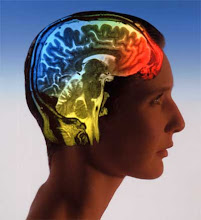Well, just a week to go folks, I hope the study is going well.
A couple of points about exam technique:
- Look carefully at the mark allocation for each question, which will be divided into K&U (knoweldge and understanding) and A&E (analysis and evaluation). For example, a ten mark question will usually be 6 K&U and 4 A&E. In prelims, many people have included information for the K&U part, but forgotten about evaulation, which is usually necessary for the A&E marks.
- Similarly, remember that an accurate and relevant evaluation point is worth 2 marks. This will usually be a strength or weakness of a theory/study/technique. Research can also be used for evaluation, e.g. by stating that the results of a study supports or does not support a theory.
- Put in detail about research studies. You will pick up marks for accurately stating things like aim, number of participants, percentages in results. Also, don't just include research where it is specifically asked for (e.g. 'Describe a research study...') but use research to flesh out all your extended-answer questions and essay questions.
- You absolutely must answer all the questions. Markers are a nice bunch of people really, they may give you a mark or two for a weak answer but if you write nothing then you are guaranteed to get zero.
- You don't have to answer the questions in order. Consider tackling the essay question in Section C first, rather than leaving it to the end (and yes, you will get an essay question in either Conformity&Obedience or Intelligence. Look at the past papers to get an idea of which is most likely to appear this year!).
Hope this helps, I'll be around on my usual days this week to answer questions, mark practice answers etc. Revision classes 10.30 room A24.
Showing posts with label analysis. Show all posts
Showing posts with label analysis. Show all posts
Monday, 1 June 2009
Thursday, 29 May 2008
A&E marks again
I've already posted on this topic, but just to highlight again, underline, circle in red pen and otherwise draw to your attention, two especially important points:
1) You can get A&E marks for giving real-world examples.
Thursday, 15 May 2008
Exam info: A&E marks
One of you has been asking how to pick up A&E marks on questions where you are not evaluating a theory or research study.
I thought it would be useful to copy from the course arrangement document the SQA's description of what these marks should be awarded for, and this is in italics below. Three of the main points which you may not have realised:
You can get A&E marks for giving real-world examples
You can get A&E marks for explaining parts of a model and how they work together
You can get A&E marks for comparing and contrasting
Remember that A%E makes up 40% of the exam marks overall, but check carefully the mark allocation for each question before you answer it.
Analysis will involve, for example:
♦ explanation of components of a behaviour or mental process and the relationship between
these
♦ description of factors affecting behaviours and mental processes
♦ discussion of origins and development of behaviours and mental processes
♦ interpretation of research findings and conclusions in relation to relevant theory
♦ the ability to discuss psychological phenomena from alternative theoretical perspectives
♦ comparison of evidence from different cultural contexts
♦ integration of knowledge from different psychological areas, and of new information with
already-existing knowledge
♦ identification of common underlying themes, such as nature/nurture interaction; application
of knowledge in a new context, or in a situation in everyday life
Evaluation may include aspects of analysis as well as the ability:
♦ to weigh up the strengths and weaknesses of psychological theories, concepts, research
evidence, research methodology, and psychological applications
♦ to compare and contrast theories
♦ to discuss ethical issues in psychological research and applications
I thought it would be useful to copy from the course arrangement document the SQA's description of what these marks should be awarded for, and this is in italics below. Three of the main points which you may not have realised:
You can get A&E marks for giving real-world examples
You can get A&E marks for explaining parts of a model and how they work together
You can get A&E marks for comparing and contrasting
Remember that A%E makes up 40% of the exam marks overall, but check carefully the mark allocation for each question before you answer it.
Analysis will involve, for example:
♦ explanation of components of a behaviour or mental process and the relationship between
these
♦ description of factors affecting behaviours and mental processes
♦ discussion of origins and development of behaviours and mental processes
♦ interpretation of research findings and conclusions in relation to relevant theory
♦ the ability to discuss psychological phenomena from alternative theoretical perspectives
♦ comparison of evidence from different cultural contexts
♦ integration of knowledge from different psychological areas, and of new information with
already-existing knowledge
♦ identification of common underlying themes, such as nature/nurture interaction; application
of knowledge in a new context, or in a situation in everyday life
Evaluation may include aspects of analysis as well as the ability:
♦ to weigh up the strengths and weaknesses of psychological theories, concepts, research
evidence, research methodology, and psychological applications
♦ to compare and contrast theories
♦ to discuss ethical issues in psychological research and applications
Subscribe to:
Posts (Atom)
